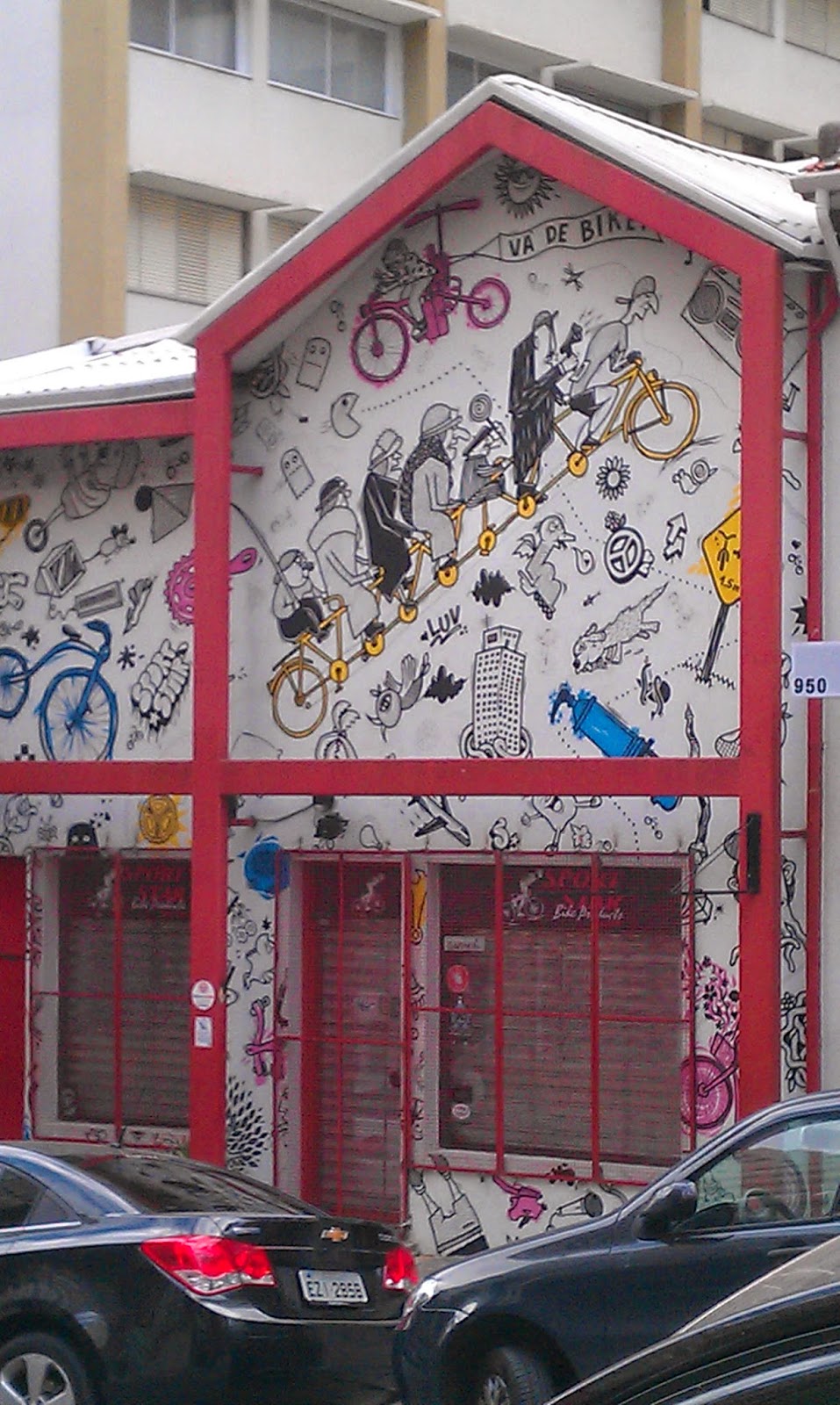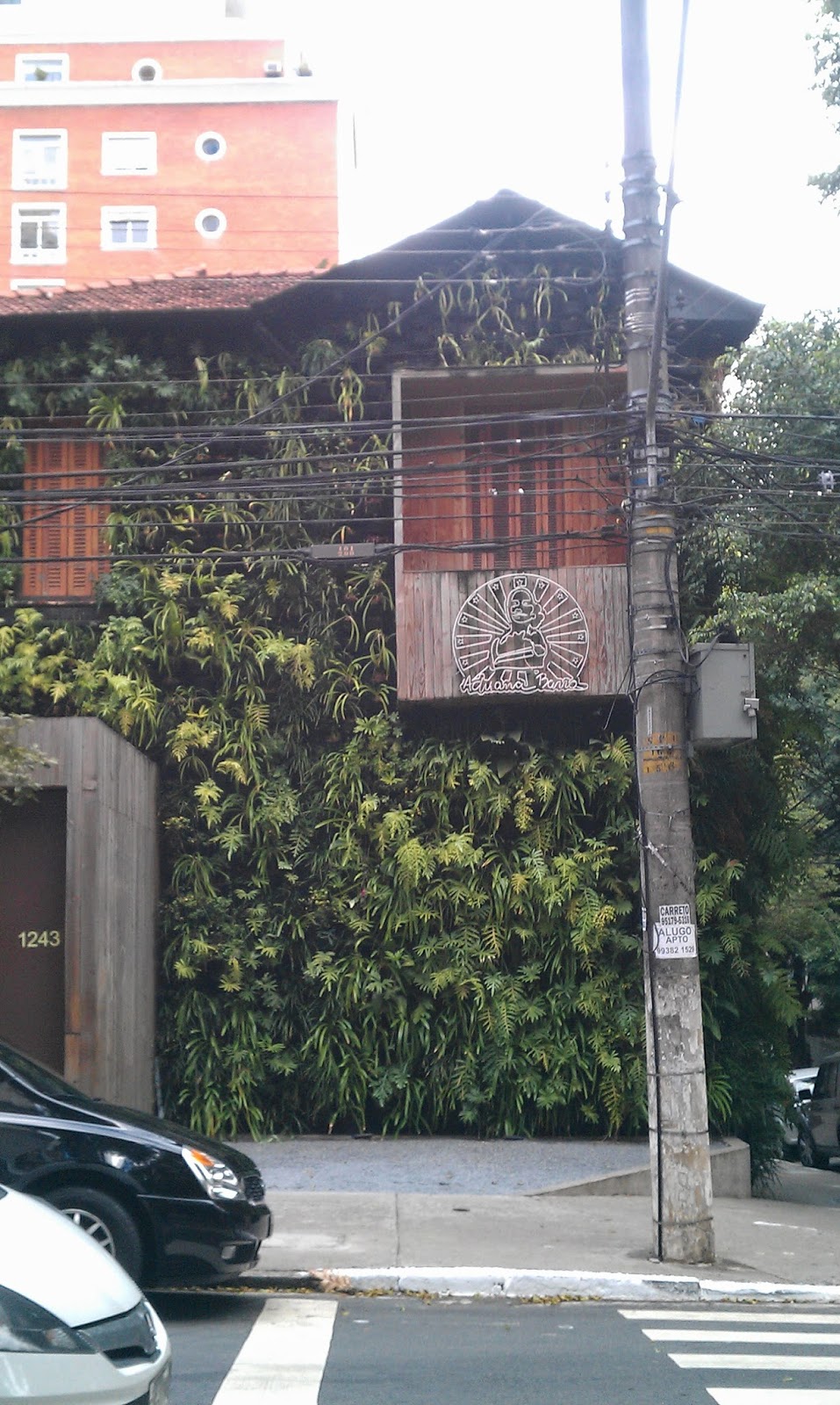I'm ridiculously excited about watching the opening match of the World Cup tonight. (Yes … the football one - other World Cups are available). Brazil v. Croatia, and I've actually seen the stadium where they will be playing.
Arriving in São Paulo, I was about two hours late. The lovely
Pousada Zilah, where I was staying had arranged for a taxi to collect me. Would it still be there, I wondered?
Efficient unloading of baggage meant that I was swiftly through the airport and out into the arrivals hall, and there ahead of me was the sign with my name on, accompanied by a flood of relief, that I didn't have to think for myself and work out where I was going in this vast city. The moment I indicated my presence to the taxi driver, he politely excused himself to make a phone call…
"I've got her," was what I managed to understand, before he asked me if I minded talking to what I guessed was the Pousada Zilah.
"It's ok, we were just worried. Were were expecting you here by now."
"I'm sorry. My plane was late," apologising as if to my Dad.
 |
| The lovely Pousada Zilah |
How do you convey the enormity of São Paulo? A metropolis that's home to 20 million people who like their cars.
"The traffic's not too bad today," is what I think my taxi driver commented (think A40 out of London at 5.00pm on a Friday night). We are trying conversation. He is telling me stuff in Portuguese and I'm trying to reply in very poor Spanish with the occasional smattering of Italian. But we get by. We pass a supermarket with a fuel station and he asks me if I mind if he gets petrol. Someone is blocking the exit and he gets stressed. I try to reassure him that I'm in no hurry - I'm just taking it all in.
Back on the road again we pass a football stadium - it's not the Arena Corinthians - this one's finished. The conversation turns to the World Cup (I think). And I think he's looking forward to it. He likes his football.
We turn off a main road into a quiet avenue and a few turns later we pull up outside the Pousada Zilah. In this haven in the midst of the vast city, I taste my first Brazilian coffee. There's birdsong and the smell of freshly baked cakes and the sweet aroma of papaya and melon. And there's an atmosphere of calm. Desiderata.
I find a message on Facebook from my fellow UK delegate, Lorna. She's with friends in São Paulo and they are going to meet me here around lunchtime - maybe 1pm or 2 at the latest.
At 3.30 pm I hear someone mention my name at reception. It's one of Lorna's friends. We introduce ourselves. He tells me he was stuck in traffic and doesn't seem that surprised that Lorna and the others aren't here yet. We chat about life in São Paulo. We chat about traffic. I wonder why so many people drive in this huge city. There's a metro. Does anyone use it?
The problem with the metro is that it doesn't cover all parts of the city. There's a new monorail being built, one of the infrastructure improvements for the World Cup, but it's not finished. Later we drive past the monorail - or at least the end of it. It just stops - looking like a scene in a disaster movie.
There's a worry that once the World Cup has been and gone the monorail project will be abandoned.
Lorna and friends arrive. "Traffic," they say. It makes me wonder how São Paulo functions on a daily basis. Does everyone make their meetings with a three hour window of possible arrival time?
We head off to Ibirapuera Park. Once again we are negotiating traffic. Everyone else is going to the park too, clearly. And to add to the stress (which is thankfully passing me by as I'm loving the magical mystery tour around the city) we are trying to follow one of many little black cars, can't tell you what kind of little black car.
They're link ants, they're everywhere. You spot one, then you spot another and another and soon you see there are hundreds of them all around you, bustling about the place. But which ant is your ant? Ahh!
Eventually we realise we've lost 'our' little black car, so we head to the nearest car park at one of the entrances to the park, and we'll phone. Seems, though, that everyone else in this big city is doing the same thing and we can't get a signal. We play SMS tag as we wonder through this oasis. This is big time family fun. There are skate parks, bike tracks, climbing walls, rope courses. There's ice cream and there are coconuts. There are clowns and acrobats. There's basket ball, there's football, there are tennis courts. There's the lake. And there are trees everywhere. Beautiful trees.
We head off to take the children home and then we are going for pizza. More magical mystery tour around the streets of São Paulo. Darkness falls quickly and we are surrounded by bright lights of high rise buildings, twinkling neon as far as we can see.
We finish the evening at a birthday party - a friend of friends of friends of the people I have just met today, but it's Saturday night and I must come and see a Brazilian party. There'll be great music, there'll be dancing, there'll be a few beers (and they don't even think to tell me about the great view from the balcony).
I'm beyond tired. I haven't slept for forty hours, but this is São Paulo, there's music, there's laughter, there's dancing and I love it!
 |
| #Brasil xx |

















